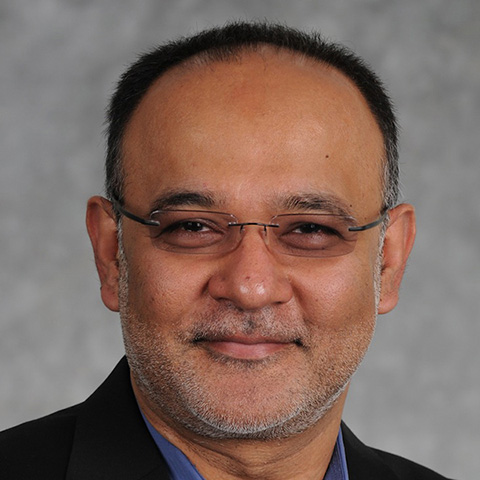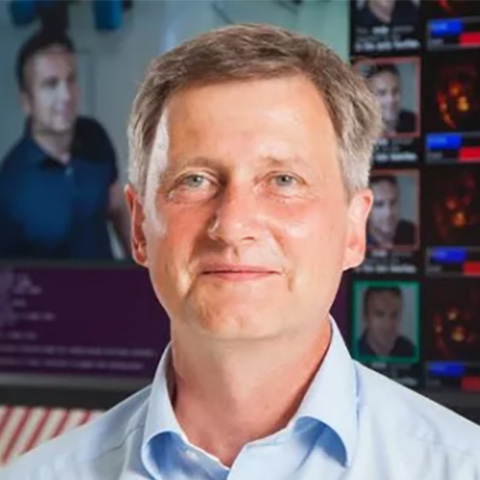Keynote Speeches
Talk Title
Generative AI and Responsible AI
Abstract
With the growth of Large Language Models, we have seen fantastic growth in content generation technologies driven by large amounts of data. This trend has also seen the development of visual content (images, videos, and mixed multimedia). In this talk, first, I will cover some history of visual content creation, leading up to some of the current approaches for image/video synthesis. I will cover some of our recent work on Generative Vision Transformer models and cover concepts like Masked Vision Transformers applied to doing both style transfer (STYLEDROP) and video generation (MAGVIT). I will discuss applications of these approaches to showcase how this new form of generative AI can be used. In the second part of this talk, I will discuss the societal challenges these technological advances can cause and how we need to be responsible for how these technologies are developed, trained, modeled, tested, and deployed.
Short Bio
Irfan Essa is a Distinguished Professor in the School of Interactive Computing (IC) and a Senior Associate Dean in the College of Computing (CoC), at the Georgia Institute of Technology (GA Tech), in Atlanta, Georgia, USA. He is the Interim Director of the newly created AI Hub at Georgia Tech and the Inaugural Executive Director of the new Interdisciplinary Research Center for Machine Learning at Georgia Tech (ML@GT). Irfan Essa is also a Principal Research Scientist at Google Inc., leading the Google Atlanta Research Office.
Professor Essa works in the areas of Computer Vision, Artificial Intelligence, Machine Learning, Computer Graphics, Computational Perception, Robotics, Computer Animation, and Social Computing, with potential impact on Autonomous Systems, Video Analysis, and Production (e.g., Computational Photography & Video, Image-based Modeling and Rendering, etc.), Intelligent and Aware Environments, Human-Computer Interaction, Computational Behavioral/Social Sciences, and Computational Journalism research. He has published over 200 scholarly articles in leading journals and conference venues on these topics, and several of his papers have also won best paper awards. He has been awarded the NSF CAREER award and was elected to the grade of IEEE Fellow. He has held extended research consulting positions with Disney Research and Google Research and also was an Adjunct Faculty Member at Carnegie Mellon’s Robotics Institute.
He joined GA Tech Faculty in 1996 after earning his MS (1990), and Ph.D. (1994) and holding a Research Faculty position at the Massachusetts Institute of Technology (Media Lab) [1988-1996]. More information at irfanessa.com
Talk Title
AI for Getting Insights: From Brain Computer Interfacing to Digital Pathology
Abstract
In recent years, machine learning (ML) and artificial intelligence (AI) methods have begun to play a more and more enabling role in the sciences and in industry. In particular, the advent of large and/or complex data corpora has given rise to new technological challenges and possibilities. In his talk, Mueller will touch upon the topic of ML applications in the sciences, in particular in the Neurosciences and Medicine. He will also discuss possibilities for extracting information from machine learning models with explainable AI to gain genuinely novel insights – a powerful and highly useful concept especially in medicine. Finally, Mueller will briefly discuss perspectives and limitations.
Short Bio
Klaus-Robert Mueller has been a professor of computer science at Technische University Berlin since 2006; at the same time he is co-directing the Berlin Institute for the Foundations of Learning and Data (BIFOLD) --- one of five German National AI Centers. He studied physics in Karlsruhe from1984 to 1989 and obtained his Ph.D. degree in computer science at Technische University Karlsruhe in 1992. After completing a postdoctoral position at GMD FIRST in Berlin, he was a research fellow at the University of Tokyo from 1994 to 1995. In 1995, he founded the Intelligent Data Analysis group at GMD-FIRST (later Fraunhofer FIRST) and directed it until 2008. From 1999 to 2006, he was a professor at the University of Potsdam. From 2012 he has been Distinguished Professor at Korea University in Seoul. In 2020/2021 he spent his sabbatical at Google Brain as a Principal Scientist. Among others, he was awarded the Olympus Prize for Pattern Recognition (1999), the SEL Alcatel Communication Award (2006), the Science Prize of Berlin by the Governing Mayor of Berlin (2014), the Vodafone Innovations Award (2017), Pattern Recognition Best Paper award (2020), Digital Signal Processing Best Paper award (2022). In 2012, he was elected member of the German National Academy of Sciences-Leopoldina, in 2017 of the Berlin Brandenburg Academy of Sciences, in 2021 of the German National Academy of Science and Engineering and also in 2017 external scientific member of the Max Planck Society. From 2019 on he became an ISI Highly Cited researcher in the cross-disciplinary area. His research interests are intelligent data analysis and Machine Learning in the sciences (Neuroscience (specifically Brain-Computer Interfaces, Physics, Chemistry) and in industry.
Talk Title
Beyond the Computer Vision Comfort Zone
Abstract
Spectacular progress has been achieved in computer vision in the past dozen years, in large part thanks to black-box deep learning models trained in a supervised manner on manually annotated data, sometimes unrelated to any real task. I propose instead to give back to accurate physical models of image formation their rightful place next to machine learning in the overall processing and interpretation pipeline, and will discuss applications to two real engineering and scientific tasks, namely super-resolution and high-dynamic range imaging from photographic bursts acquired by handheld smartphones, and exoplanet detection and characterization in direct imaging at high contrast. In this context, realistic synthetic data are easy to generate without any manual intervention, but real ground truth is typically missing. I will also discuss new approaches to video prediction where real data is readily available, and training can be achieved in a self-supervised manner using temporal consistency. I will conclude by discussing potential real applications to this admittedly somewhat artificial problem.
Short Bio
Jean Ponce is a Professor at Ecole Normale Supérieure - PSL, where he served as Director of the Computer Science Department from 2011 to 2017 and a Global Distinguished Professor at the Courant Institute of Mathematical Sciences and the Center for Data Science at New York University. He is also the co-founder and CEO of Enhance Lab, a startup that commercializes software for joint demosaicing, denoising, super-resolution and HDR imaging from raw photo bursts. Before joining ENS and NYU, Jean Ponce held positions at Inria, MIT, Stanford, and the University of Illinois at Urbana-Champaign, where he was a Full Professor until 2005. Jean Ponce is an IEEE and an ELLIS Fellow and was a Sr. member of the Institut Universitaire de France. He has served as Program and/or General Chair of all three top international Computer Vision Conferences, CVPR (1997 and 2000), ECCV (2008) and ICCV (2023), and as Sr. Editor-in-Chief of the International Journal of Computer Vision. He currently serves as Scientific Director of the PRAIRIE Interdisciplinary AI Research Institute in Paris. Jean Ponce is the recipient of two US patents, an ERC advanced grant, the 2016 and 2020 IEEE CVPR Longuet-Higgins prizes, and the 2019 ICML test-of-time award. He is the author of "Computer Vision: A Modern Approach", a textbook translated in Chinese, Japanese, and Russian.
Talk Title
The AI in Science and the Science in AI
Abstract
AI has progressed at an incredibly fast, sometimes scary, pace. From solving complicated games such as chess and GO, to generating images with uncanny quality, to Chatbots which exhibit the first signs of Artificial General Intelligence. Important as these advances are in their respective application domains, I predict that we will see a much bigger paradigm shift in the way we will do scientific research in the near future based on these same techniques. For example, researchers at Google Deepmind used the same reinforcement learning technology that powers AlphaGO to fold proteins, cracking an open problem in the life sciences. Researchers around the world are making great strides in using the same technology that generates images to generate new drug molecule candidates. And the Large Language Models that power Chatbots like ChatGPT can be used to reason about complicated scientific problems. These and future techniques can be used effectively to tackle some of the most urgent challenges that humanity will face over the next decades, such as designing new materials to capture and store carbon, making more efficient batteries, new catalysts to generate hydrogen more efficiently from water, and better designs for nuclear fusion reactors and wind turbines. But what is interesting is that the tools developed in the sciences are also at the core of some of the recent successes of AI. For instance, the models used to generate images are based on models developed by mathematicians and physicists a long time ago to describe liquids and gases. And with the advance of quantum computing we may see yet another disruption at the interface of computer science and physics. In my talk I will try to explain the enormous potential that this synergy will bring us, not only in terms of discovering powerful new AI algorithms, but also in terms of empowering the scientific applications that are relevant to tackle the big challenges for humanity over the decades.
Short Bio
Prof. Dr. Max Welling is a full professor and research chair in machine learning at the University of Amsterdam. He is a fellow at the Canadian Institute for Advanced Research (CIFAR) and the European Lab for Learning and Intelligent Systems (ELLIS) where he serves on the founding board. His previous appointments include Partner and VP at Microsoft Research, VP at Qualcomm Technologies, professor at UC Irvine, postdoc at UCL & U. Toronto under supervision of prof. Geoffrey Hinton, and postdoc at Caltech under supervision of prof. Pietro Perona. He finished his PhD in theoretical high energy physics under supervision of Nobel laureate prof. Gerard ‘t Hooft. Max Welling has served as associate editor in chief of IEEE TPAMI from 2011-2015, he serves on the advisory board of the Neurips foundation since 2015, he is co-founder of the European Lab for Learning and Intelligence Systems (ELLIS) and served on its board until 2021, he has been program chair and general chair of Neurips in 2013 and 2014 respectively. He was also program chair of AISTATS in 2009 and ECCV in 2016 and general chair and co-founder of MIDL 2018. Max Welling is recipient of the ECCV Koenderink Prize in 2010 and the ICML Test of Time award in 2021.




